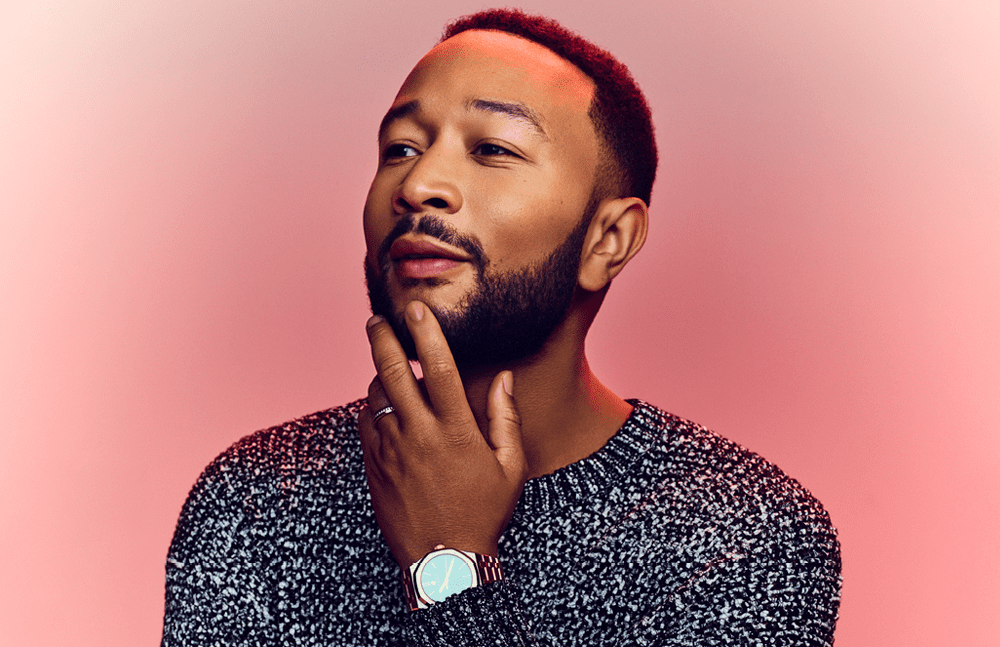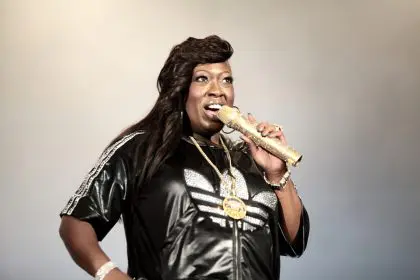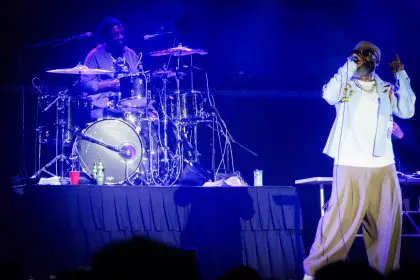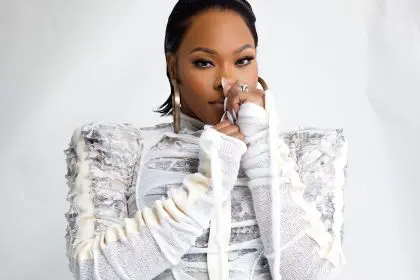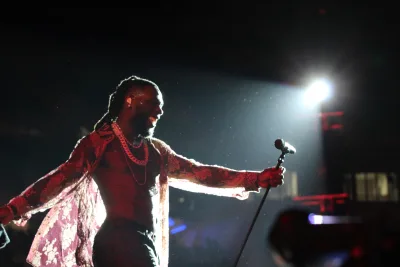Grammy-winning artist John Legend delivered a powerful condemnation of former President Donald Trump’s immigration rhetoric during a recent “Club Shay Shay” podcast appearance, drawing direct parallels between current politics and historical fascism.
“When he talks about immigration, he’s talking about Black and brown people … So what he’s saying is, the ideal version of America is a white America,” Legend declared, responding to Trump’s controversial claim that immigrants are “poisoning the blood of our country.”
The Springfield native joins a growing chorus of celebrities speaking out. Taylor Swift, who broke her long-standing political silence, called Trump’s presidency “autocratic” and criticized his immigration policies. Robert De Niro has repeatedly condemned Trump’s rhetoric, stating at the 2020 SAG Awards, “There’s right and there’s wrong, and there’s common sense and there’s abuse of power.”
“This man thinks we are inferior,” Legend stated, suggesting Trump’s comments specifically target global South communities. His critique aligns with Vice President Kamala Harris’s recent characterization of Trump as “dangerous” during a town hall where she referenced Trump’s alleged admiration for Hitler’s military leadership.
Mark Ruffalo has been equally outspoken, using his social media platform to challenge Trump’s statements about immigration, calling them “dangerous and un-American.” Meanwhile, America Ferrera has consistently criticized Trump’s characterization of Latino immigrants, speaking out at numerous rallies and public forums.
Political analysts note the significance of Legend’s platform in addressing racial discourse. “When artists of his stature speak out, it forces public conversation about racism at the highest levels of politics,” noted civil rights attorney Benjamin Crump.
LeBron James has also emerged as a powerful voice against Trump’s rhetoric, particularly on social issues affecting Black communities. The NBA star called Trump’s statements “divisive” and “designed to split us apart.”
“The stakes couldn’t be higher,” Legend emphasized. “We’re not just fighting about politics – we’re fighting for the soul of America and what we stand for as a nation.”
Cultural critics observe Legend’s words carry particular weight given his consistent advocacy for social justice. “He’s not just making headlines; he’s continuing a long tradition of artists standing against oppression,” noted Harvard professor of African American studies Dr. Michelle Williams.
The entertainment industry’s response to Trump’s rhetoric has been increasingly unified. “What we’re seeing is unprecedented solidarity among artists speaking truth to power,” explains entertainment analyst Maria Rodriguez. “They’re using their platforms to challenge dangerous narratives.”
Legend’s support for Harris in the 2024 presidential race underscores his commitment to challenging discriminatory rhetoric. His stance represents a growing movement of artists using their influence to address systemic racism.
“Artists have always been at the forefront of social change,” notes civil rights historian Dr. James Peterson. “Legend’s words echo the tradition of artists like Harry Belafonte and Nina Simone, who used their platforms to fight racism.”
The impact of celebrity voices on political discourse remains significant. “When public figures with massive followings speak out, it helps normalize anti-racist positions and encourages others to take stands,” explains social media analyst David Chen.
As America approaches a pivotal election year, Legend’s intervention highlights the entertainment industry’s crucial role in confronting racism and protecting democratic values. His critique frames the 2024 election as a fundamental choice about America’s commitment to equality and justice.
“History will judge us by how we responded in this moment,” Legend concluded. “Silence isn’t an option when the foundations of our democracy are at stake.”
The artist’s comments spark essential conversations about racism, immigration and political leadership while America grapples with defining its future direction. Legend’s voice joins a chorus of public figures refusing to remain silent in the face of divisive rhetoric.
As the 2024 campaign intensifies, the role of celebrity activism in shaping public discourse appears increasingly vital. Legend’s bold stance may inspire more artists to use their platforms for political engagement and social justice advocacy.

